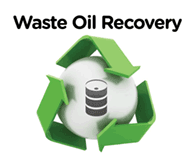Discussions focussed on Australia’s Emergency Plant Pest Response Deed, its implementation, lessons learned and wider benefits.
PHA Board members emphasised the importance of having frameworks in place, noting that during a response is not the best time to decide matters like cost shares, compensation or finances. They also said staff turnover is a challenge. Ongoing training, good documentation and record keeping, and a designated ‘custodian’ of the deed are all important.
The Australians saw an advantage in GIA, in that the New Zealand Deed encompasses all sectors. In Australia some pests and diseases, such as those affecting pastures, are not covered by either the plant or animal deeds. This means there is no framework in place to manage these biosecurity risks. Also, the Australian system has no mechanism to allow plant and animal sectors to make decisions together.
PHA Board members felt that a major benefit of their Deed has been the maturing of industries into effective biosecurity partnerships that have produced better biosecurity outcomes and greater awareness of and investment in biosecurity as a whole.
The TDGG/PHA meeting followed the TDGG meeting on 18 September. The communiqué from this meeting is available from the GIA website.
The TDGG will hold its next meeting (5/2014) on 29 October in Wellington.



 Classifieds
Classifieds



